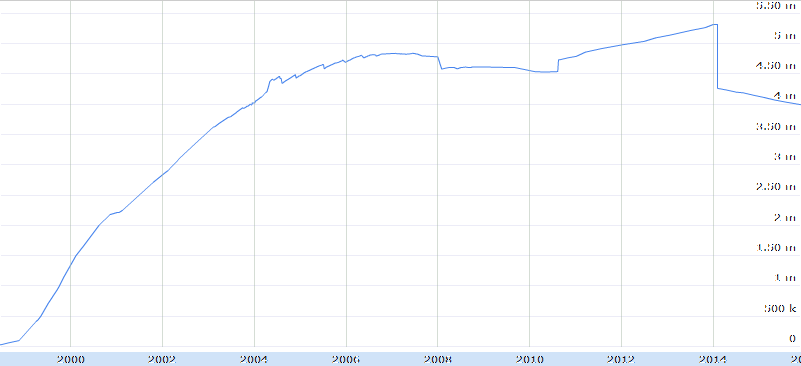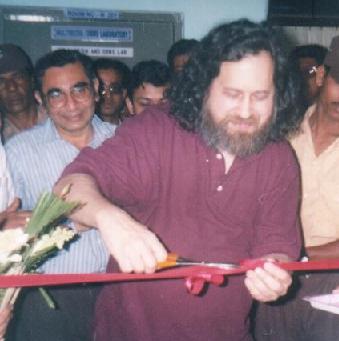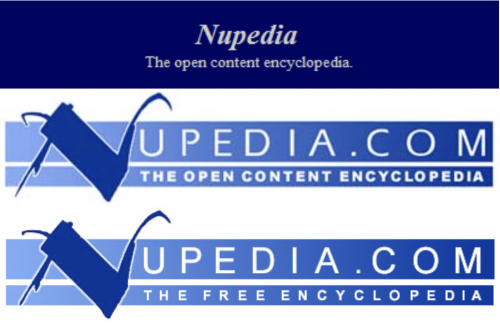|
Open Directory Project
DMOZ (from ''directory.mozilla.org'', an earlier domain name, stylized in lowercase in its logo) was a multilingual open-content directory of World Wide Web links. The site and community who maintained it were also known as the Open Directory Project (ODP). It was owned by AOL (now a part of Verizon Media) but constructed and maintained by a community of volunteer editors. DMOZ used a hierarchical ontology scheme for organizing site listings. Listings on a similar topic were grouped into categories which then included smaller categories. DMOZ closed on March 17, 2017 because AOL no longer wished to support the project. The website became a single landing page on that day, with links to a static archive of DMOZ, and to the DMOZ discussion forum, where plans to rebrand and relaunch the directory are being discussed. , a non-editable mirror remained available at dmoztools.net, and it was announced that while the DMOZ URL would not return, a successor version of the directory nam ... [...More Info...] [...Related Items...] OR: [Wikipedia] [Google] [Baidu] |
Web Directory
A web directory or link directory is an online list or catalog of websites. That is, it is a directory on the World Wide Web of (all or part of) the World Wide Web. Historically, directories typically listed entries on people or businesses, and their contact information; such directories are still in use today. A web directory includes entries about websites, including links to those websites, organized into categories and subcategories. Besides a link, each entry may include the title of the website, and a description of its contents. In most web directories, the entries are about whole websites, rather than individual pages within them (called "deep links"). Websites are often limited to inclusion in only a few categories. There are two ways to find information on the Web: by searching or browsing. Web directories provide links in a structured list to make browsing easier. Many web directories combine searching and browsing by providing a search engine to search the directory. U ... [...More Info...] [...Related Items...] OR: [Wikipedia] [Google] [Baidu] |
Richard Stallman
Richard Matthew Stallman (; born March 16, 1953), also known by his initials, rms, is an American free software movement activist and programmer. He campaigns for software to be distributed in such a manner that its users have the freedom to use, study, distribute, and modify that software. Software that ensures these freedoms is termed free software. Stallman launched the GNU Project, founded the Free Software Foundation (FSF) in October 1985, developed the GNU Compiler Collection and GNU Emacs, and wrote the GNU General Public License. Stallman launched the GNU Project in September 1983 to write a Unix-like computer operating system composed entirely of free software. With this, he also launched the free software movement. He has been the GNU project's lead architect and organizer, and developed a number of pieces of widely used GNU software including, among others, the GNU Compiler Collection, GNU Debugger, and GNU Emacs text editor. Stallman pioneered the concept of copyl ... [...More Info...] [...Related Items...] OR: [Wikipedia] [Google] [Baidu] |
Wikipedia
Wikipedia is a multilingual free online encyclopedia written and maintained by a community of volunteers, known as Wikipedians, through open collaboration and using a wiki-based editing system. Wikipedia is the largest and most-read reference work in history. It is consistently one of the 10 most popular websites ranked by Similarweb and formerly Alexa; Wikipedia was ranked the 5th most popular site in the world. It is hosted by the Wikimedia Foundation, an American non-profit organization funded mainly through donations. Wikipedia was launched by Jimmy Wales and Larry Sanger on January 15, 2001. Sanger coined its name as a blend of ''wiki'' and '' encyclopedia''. Wales was influenced by the " spontaneous order" ideas associated with Friedrich Hayek and the Austrian School of economics after being exposed to these ideas by the libertarian economist Mark Thornton. Initially available only in English, versions in other languages were quickly developed. Its combin ... [...More Info...] [...Related Items...] OR: [Wikipedia] [Google] [Baidu] |
Nupedia
Nupedia was an English-language, online encyclopedia whose articles were written by volunteer contributors with appropriate subject matter expertise, reviewed by expert editors before publication, and licensed as free content. It was founded by Jimmy Wales and underwritten by Bomis, with Larry Sanger as editor-in-chief. Nupedia operated from October 1999 until September 2003. It is best known today as the predecessor of Wikipedia. Nupedia had a seven-step approval process to control content of articles before being posted, rather than live wiki-based updating. Nupedia was designed by committee, with experts to predefine the rules, and it had only 21 articles in its first year, compared to Wikipedia posting 200 articles in the first month, and 18,000 in the first year. Unlike Wikipedia, Nupedia was not a wiki; it was instead characterized by an extensive peer review, peer-review process, designed to make its articles of a quality comparable to that of professional encyclopedias. N ... [...More Info...] [...Related Items...] OR: [Wikipedia] [Google] [Baidu] |
Larry Sanger
Lawrence Mark Sanger (; born July 16, 1968) is an American Internet project developer and philosopher who co-founded the online encyclopedia Wikipedia along with Jimmy Wales. Sanger coined the name and wrote much of Wikipedia's original governing policy, such as "Neutral point of view". Sanger has worked on other online projects, including Nupedia, ''Encyclopedia of Earth'', Citizendium, WatchKnowLearn, Reading Bear, Infobitt, Everipedia, the Knowledge Standards Foundation and the encyclosphere. He also advised blockchain company Phunware and the nonprofit online American political encyclopedia Ballotpedia. While studying at college, Sanger developed an interest in using the Internet for educational purposes and joined the online encyclopedia Nupedia as editor-in-chief in 2000. Disappointed with the slow progress of Nupedia, Sanger proposed using a wiki to solicit and receive articles to put through Nupedia's peer-review process; this change led to the development and launch of ... [...More Info...] [...Related Items...] OR: [Wikipedia] [Google] [Baidu] |
Open Site
Open-Site, the Open Encyclopedia Project was a free internet encyclopedia operated by Michael J. Flickinger in an effort to build a free categorized community-built encyclopedia, inspired by DMOZ. The Open Site software was open-source software under the Mozilla Public License and the content was free content under the GNU Free Documentation License. The Open-Site encyclopedia used an ontology based on that of DMOZ. Open-Site had the following main categories, under which most content was organized in several layers of subcategories: *Arts – covering creative pursuits and entertainment. *Business – covering business and finance. *Computers – covering computers and the internet. *Games – covering video games and various other games. *Health – covering human health and animal health. *Home – covering the home and family. *Recreation – covering recreation and leisure. *Regional – covering countries and localities. *Science ... [...More Info...] [...Related Items...] OR: [Wikipedia] [Google] [Baidu] |
Zeal (web)
Zeal was a volunteer-built web directory launched by Brian Goler and Kevin Berk in 1999, and then acquired by LookSmart in October 2000 for $20 million. Zeal combined the work of Looksmart's paid editors with that of volunteers who profiled websites and placed them in a hierarchy of subcategories. The resulting categories and profiles were downloaded at intervals by LookSmart and its partners, other search companies such as MSN, Lycos, and Altavista, for use in their own systems with or without modification. Paid editors attended to commercial sites and oversaw the voluntary work on non-commercial sites. Volunteers worked under a defined set of Guidelines and were required to pass an introductory level test on those Guidelines before submitting site profiles or edits. As points and experience were acquired, volunteers could elect to take a further exam which allowed them to "adopt" and create topic categories of special interest. They could then move up the organizational str ... [...More Info...] [...Related Items...] OR: [Wikipedia] [Google] [Baidu] |
Catastrophic Failure
A catastrophic failure is a sudden and total failure from which recovery is impossible. Catastrophic failures often lead to cascading systems failure. The term is most commonly used for structural failures, but has often been extended to many other disciplines in which total and irrecoverable loss occurs, such as a head crash occurrence on a hard disk drive. Such failures are investigated using the methods of forensic engineering, which aims to isolate the cause or causes of failure. For example, catastrophic failure can be observed in steam turbine rotor failure, which can occur due to peak stress on the rotor; stress concentration increases up to a point at which it is excessive, leading ultimately to the failure of the disc. In firearms, catastrophic failure usually refers to a rupture or disintegration of the barrel or receiver of the gun when firing it. Some possible causes of this are an out-of-battery gun, an inadequate headspace, the use of incorrect ammunition, the use ... [...More Info...] [...Related Items...] OR: [Wikipedia] [Google] [Baidu] |
Yahoo! Directory
The Yahoo! Directory was a web directory which at one time rivaled DMOZ in size. The directory was Yahoo!'s first offering and started in 1994 under the name Jerry and David's Guide to the World Wide Web. When Yahoo! changed its main results to crawler-based listings under Yahoo! Search in October 2002, the human-edited directory's significance dropped, but it was still being updated as of August 19, 2014. Users could browse thousands of listings which were organized in 7 or more tiers. For example, if a user was looking for a site on chess they might follow a path such as: recreation -> games -> board games -> chess. The directory originally offered two options for suggesting websites for possible listing: "Standard", which was free,How do I add my site t ... [...More Info...] [...Related Items...] OR: [Wikipedia] [Google] [Baidu] |



